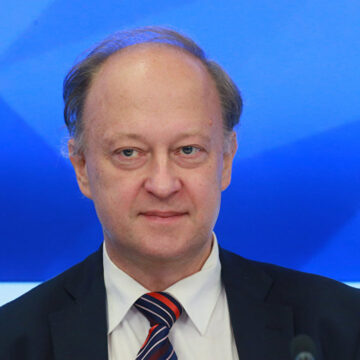The most serious impediment to improving US Russian relations today is not the lack of trust between our nations but rather the dark cloud of suspicion hovering over the Trump administration regarding its ties to the Kremlin. Distrust is a pedestrian concern that will not disappear even in the absence of a proven conspiracy regarding the 2016 election. A president insufficiently trusted within the US to represent the interests of the US in negotiations with Russia is unprecedented and a massive problem seemingly barring progress in the bilateral relationship.
But there are several measures that could render the Trump issue largely irrelevant to progress in this important relationship. The key feature would be to take a multilateral approach to what is traditionally considered a bilateral process. If US allies are front and center in negotiations on critical issues, with the professional bureaucracies of those allies and the US playing a major role, and if the results are conspicuously transparent, we can try to tackle “can’t wait” issues. We can and should address immediately, for example, the security of nuclear codes and of other critical infrastructure. We also face a series of thorny issues underscored by recent setbacks such as the US withdrawal from the INF, potential conflicts in Venezuela and ongoing tensions in Ukraine and Syria. The US and Russia must find a way to keep working regardless of how many times each feels it has been disappointed or betrayed in the past. That is our responsibility.
What about in the long term? We will need to recognize that our uniqueness and differences do not undercut our fundamental historic, cultural anthropological, geographic and sociological similarities. These traits offer a foundation for future cooperation. For most of the Twentieth century, Soviet totalitarianism kept Russia separated from Europe. Only in the 1990s did Russia start to rediscover its Western identity.
We have to confess that this first attempt to get Russia back to where it rightfully belongs, with solid Western relationships and trade, failed. The thirty-year battle for the Russian soul was lost. But even today, with mutual significant animosity between Moscow and Western capitals, Russians are more westernized than they ever were during the millennium of their history. There are more Russians traveling to the West to study, to work, to spend vacations and to do business; there are more Russians speaking Western languages, watching Western movies, following Western fashions and identifying themselves with the globalized world than ever before. These profound social and cultural trends set limits on any policies aimed at pulling Russia apart from the West, even in the face of seemingly irreversible confrontation.
No one can predict with certainty the timing of a turn in Russia’s political trajectory or what direction a future transformation will take. Nevertheless, no matter how exactly Russia makes a U-turn on her way away from the West, the U-turn appears unavoidable and likely to come from the left. At that juncture, while the responsibility for positive change in Russia clearly rests upon Russians, both sides should do their best to make sure that the second attempt towards a broad détente will be more successful than the first one initiated by President Yeltsin.
For its part, Russia will have to do better than it did in the 1990s. The new generation of Russian reformers should learn from the bitter experience of their predecessors. For instance, the eventual Russian-Western reconciliation will need a stronger social and political base that can curb inequality and polarization, by including not only technocrats in the federal government and liberal-minded oligarchs, but also emerging small and mid-size business, municipal servants, educators and opinion-makers across the country. Above all, Russia will have to learn how to strive and prosper in the global environment of the XXI century and how to approach the outside world more as an opportunity than as a threat. Russia is a long way from embracing that mindset now.
The United States is destined to a play special role in this transition. For more than a hundred years, Russians always considered the US not only as the archrival to confront, but also a model to follow, a yardstick by which to measure its accomplishments and a partner to whom Russia could look for recognition and respect. Next time, the US will need to better resist the temptation to capitalize on Russian weaknesses. It will need to turn some of its apparent opponents within Russia into potential partners with significant stakes in political transformation. For instance, the Russian military may find a new source of legitimacy and self-esteem in playing a more active role in international peacekeeping. The Russian science and engineering talent will need private sector alternatives to designing and building new types of weapons. In sum, Russia will need stakeholders in the march away from the path it is now following.
However, the US has to put its own house if a Russia U-turn is to occur. The ongoing political crisis in the US and many uncertainties about the future of the country has the effect of delaying the forthcoming Russian transformation. The traditional role of the US in setting ethical norms for the world and provided a principled basis for American exceptionalism has been seriously undermined by “America First” policies and needs re-establishment if the US is to be emulated by Russia or others.











